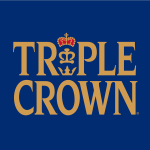There’s a large number of misrepresented topics online and beet pulp is surely one of them. The purpose of this blog post is to provide you with accurate information in order to debunk a few of the top myths about beet pulp. If you are new to feeding beet pulp, start with this link for some great info!

Myth 1 – Beet Pulp Causes Choke
Beet pulp expands when soaked with water; that’s a fact. However, it cannot expand quickly enough in the esophagus to cause choke. Most shredded beet pulp in the market is of “generic” quality – meaning it’s unscreened and can contain larger chunks that take longer to absorb water. Triple Crown Complete feeds include a “premium” shredded beet pulp that is put through an intensive screening process. This screening process produces a smaller, more consistent shred size that is easier for your horse to digest. Although not completely necessary, soaking beet pulp can be beneficial in many different instances.
Regardless of what you are feeding, it’s essential to make sure your horse doesn’t eat too quickly and always has access to plenty of good, clean water.
Myth 2 – Beet Pulp is Just Filler
According to Lori K. Warren, Ph.D., P.A.S. (Provincial Horse Specialist), beet pulp, whether used as a source of forage or as a replacement for oats, is a useful addition to the diet of many types of horses. (Click here for the technical article on nutrition) This article features the below chart, comparing some of the nutrients in beet pulp with those nutrients in other common feeds.
Comparison of the Nutrients in Beet Pulp with the Nutrients in Other Common Feeds*
| Feed | Fibre (%) | Energy (Mcal/kg) | Protein (%) | Calcium (%) |
| Beet Pulp | 20 | 3.15 | 10-12 | 0.70 |
| Oats | 11 | 3.30 | 12 | 0.09 |
| Barley | 6 | 3.70 | 13 | 0.05 |
| Alfalfa Hay | 28 | 2.30 | 15-18 | 1.30 |
| Timothy Hay | 35 | 1.95 | 6-9 | 0.35 |
*Please note these are average nutrient values and are presented on a 100% dry matter basis.
It’s true that feeding beet pulp can be a great way to put weight on a horse, but there are plenty of other beneficial applications for feeding beet pulp shreds. Ultimately, beet pulp is a nutritious feed supplement that can be added into the diets of many horses with various feeding requirements.
Myth 3 – Beet Pulp Will Make My Horse Hyper
Think of it this way, if you’re the sugar company processing sugar beets and every ounce of extracted sugar is worth big bucks to you, chances are you’re going to make sure that you get a very high percentage of sugar out of those sugar beets, right?
This extraction process is so refined that it only leaves a very small percentage of sugar in the remaining beet pulp. In fact, so little sugar remains that companies will actually add molasses to their beet pulp in order to increase the palatability of the product.
Myth 4 – Beet Pulp Isn’t a Good Forage Substitute
Beet pulp actually makes an excellent forage substitute. Looking at the earlier table, showing various feed stuffs, it is easy to see the nutritional benefits of using beet pulp as a forage source. It is high in fiber and moderate in protein and has been called a super fiber due to how digestible it is. The smaller shredded pieces compared to hay pieces can be easier for senior horses to chew or for horses who may have dentition issues. It has been suggested that you can feed up to 50% of your horse’s forage needs in beet pulp. This would be up to 10 pounds of beet pulp for a 1,000-pound horse.
As with most feed ingredients, beet pulps nutrient levels are not perfect, it is higher in calcium, lower in phosphorous and is low in some vitamins. One benefit is it has a lower potassium level than many grass hays so it makes a great fiber source for HYPP horses who should have a low potassium diet. Beet pulp mixed into commercial feeds that are recommended as “complete diets” can be fed as the sole ration of the diet and nutrient deficiencies are not a concern because the feed is properly balanced for vitamins and minerals. A complete feed means you can feed a lot of it; this means feeding upwards of 1-2% of the horse’s body weight in the complete feed daily, or in other words between 10-20 pounds of complete feed per day broken up into small meals a day). Consider beet pulp to help extend your forage needs.
At the end of the day, beet pulp is a cost-effective, safe and nutritious source of highly digestible fiber that can be beneficial in many different feeding situations.
Blog by Triple Crown Feed. Triple Crown Feed would love to answer any questions about feeding beet pulp or hear your beet pulp success stories! Click here to contact Triple Crown Feed!
We would love to see your happy horses, use #mywilcolife on Facebook, Twitter, or Instagram and tag Wilco Stores.


